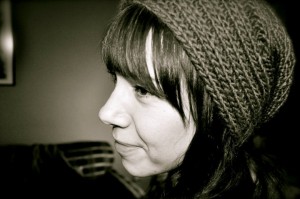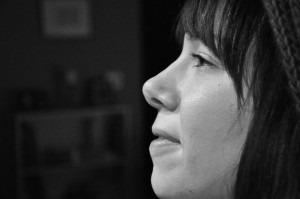

My wife and I have become friends with Dan and Jeanine. After spending several minutes with them you get a genuine sense that they are intelligent and caring people. Jeanine has a warmth about her that disarms you from realizing how brilliant she is. I’ve had very good conversations with her husband and in the future you’ll hear from him. But for now I decided to do a 2 part series of my interview with Jeanine. She currently has her Masters of Divinity in Anthropology from Asbury and will be working towards her Ph.D. However, I hope this interview engages more than just your brain but ultimately your heart.
OS: What tribe do you belong to?
My people, the Mi’kmaq of the Gaspe Peninsula of Eastern Canada, named themselves Lnu’k (or L’nu’k), which means “the people.” The word for Mi’kmaq means “my friends” and also includes Mi’kmaq from the Atlantic provinces of Canada and New England. My ancestors are from the Listuguj Mi’kmaq First Nation (or Restigouche First Nation) near the Quebec/New Brunswick border and the town of Campbellton, New Brunswick.
I am Métis, which means I live in two worlds. I am Mi’kmaq, a heritage which I am extremely connected to and which helps shape and form my response to the world in which I live. I am also descended from the Sibbald family in Scotland on my mother’s side. At one point during the earlier medieval history of Scotland the Sibbald family possessed the lands surrounding Balgonie Castle (as well as the castle itself) in what is now the County Fife.
OS:What does it mean for you to belong to that tribe?
For me, identifying with my ancestors is a huge part of my identity. My ancestors have gone before me and are a part of who I am now, who I am becoming and who I will be in the future. My identity as a “bridge between two worlds” (First Nations and non-First Nations) is crucial to who I am. Creator God has used me and continues to use me as a bridge between First Nations and non-First Nations people because I live in two worlds and my worldview is shaped accordingly. I live expressing both a Western and non-Western worldview, believing that they both have their perspectives to offer, but that one has been largely unheard and invalidated. The wisdom that a First Nations worldview has to offer is invaluable and is definitely the worldview I default to.
OS: Here in Alberta, we are aware of the atrocities resulting from residential schools under the guise of the Christian religion. As a First Nation person who also follows Christ, how do you respond to this?
Honestly, I respond to this first with sorrow. Sorrow for the lives that were taken, not only through death, but through the killing of the spirit, through the forced disconnection with land, language, traditions and customs, elders, worldview and culture. Creator God created First Nations people uniquely with something incredible to contribute to the world and assimilation has threatened to strip it from us. Unfortunately, boarding schools is just one of the methods used to do just this.
Balanced with my sorrow is my hope and prayer for true repentance on behalf of the government of Canada, which includes turning from the neo-colonialism that continues to oppress First Nations people today. Apologies are important and are a first step. However, actions speak louder than words. There must be repentance, which requires turning and walking in a different, and good, way.
First Nations people have much to contribute to the Church. We are no longer the “recipients” of the Christ that demanded assimilation (which I might add was not Christ but simply colonialism-masked-as-Christ) that the colonizer brought. Instead, First Nations believers have amazing values, traditions, customs, wisdom and new ways of expressing the heart of Creator God to offer the Church.
OS: When I go to conferences and churches here in Alberta or pretty much anywhere in North America, it is apparent how the majority of leaders and pastor’s are of Anglo-European descent. Whenever we do hear about leaders and pastor’s from other parts of the world it is often heard in the context of “helping them”. What does this say about our understanding of Christianity?
What this indicates about our understanding of Christianity is that it is limited. It is also an ethnocentric posture in many ways. As an indigenous person who travels internationally and is involved in many cross-cultural interactions I have noticed how often those from other cultures, of other faiths, beliefs, traditions, values and customs have to offer me. It is often me who is changed, who is challenged to rethink my own worldview when I travel and meet others who live life in a different manner.
Northern Alaska Inupiat scholar, Leona Okakok wisely notes, “We all know that we can go through life convinced that our view of the world is the only valid one. If we are interested in new perceptions, however, we need to catch a glimpse of the world through other eyes. We need to be aware of our own thoughts, as well as the way of life is viewed by other people.”
There is a need for this ethnocentrism to change. 1 Corinthians 12:12-27 paints a picture of one body with many members. Jesus’ body is not solely Anglo-European; there are many members from many cultures that make up the Church. It is only from this perspective that our understanding of Christianity, today, can begin to reflect more of what Scripture describes.
